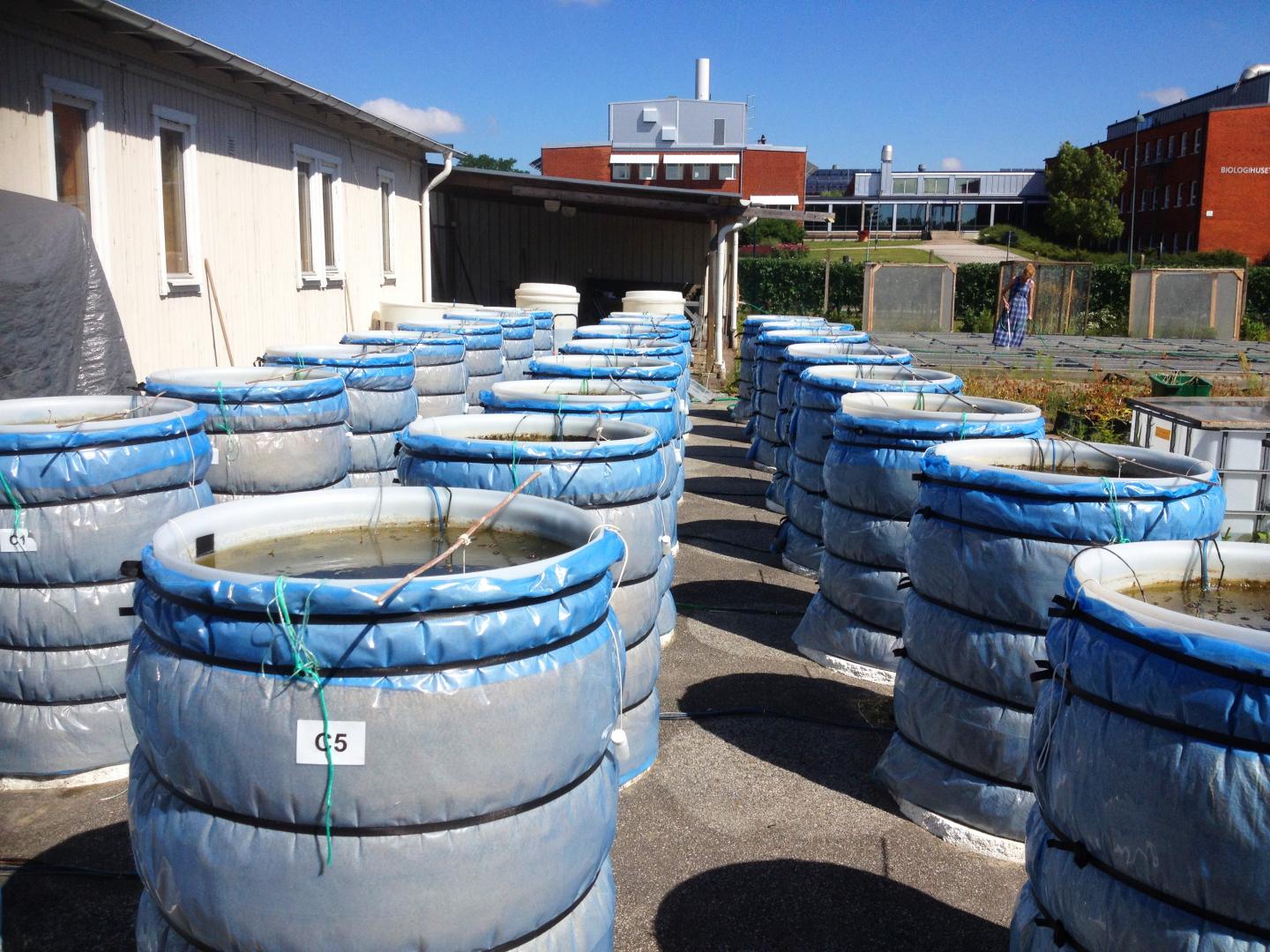
The water fleas (Daphnia) used in field experiments in 2012 to investigate their potential to control the growth of toxic cyanobacteria. Source: Lund University
Global environmental changes caused by a warmer climate can be combatted on a local level. The quality of our drinking water can be improved before it reaches water purification facilities and consumers through local efforts that minimise the growth of toxic algae and cyanobacteria in lakes.
Lakes that serve as drinking water reservoirs are becoming warmer due to ongoing global climate change. There is also an increase in the amount of organic material in the water, demonstrated by the water becoming browner (brownification). Studies conducted at Lund University in Sweden have now shown that with relatively limited resources at a local level, it is possible to mitigate and significantly delay the negative effects of global warming.
The growth of toxic algae in lakes is favoured by a warmer climate and brownification. As a result, the water quality may become so poor that it is no longer suitable for swimming, and even less so as a reservoir of drinking water. To delay the negative effects and to increase the resilience of the lakes, people can give the ecosystem a helping hand through so-called biomanipulation.
“By removing some of the small fish that feed on zooplankton, such as daphnia, instead of becoming fish food, the planktons survive and can thereby continue to consume toxic cyanobacteria”, says Pablo Urrutia Cordero, ecologist at the Faculty of Science at Lund University.
Please follow R&D Magazine on LinkedIn
He says that finding global solutions to environmental problems is a difficult and slow process. Therefore, it is important to develop new handling instructions that strongly mitigate the negative effects of global warming. Biomanipulation is such a way. In his study, he used surveillance data recorded over a period of 19 years from Ringsjön in the region of Skåne. With the help of this data, he studied how temperature variations and increased water brownification affects the growth of toxic cyanobacteria. The data from Ringsjön have also helped him come to the conclusion that biomanipulation, through the removal of certain fish, increases the quality of the water.
“No other study has ever evaluated the effects of local biomanipulation in relation to global environmental changes. The reason for this is that previous studies have used fewer data from shorter periods of time. I have had access to data collected over 19 years”, says Pablo Urrutia Cordero.
If nothing is done, the growth of toxic algae will increase as the temperature rises. He hopes that government authorities and others responsible for the management of lakes learn from the results that he recently presented in his thesis and that are now published in an article inNature Scientific Reports.




